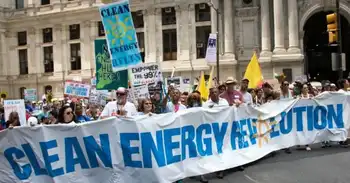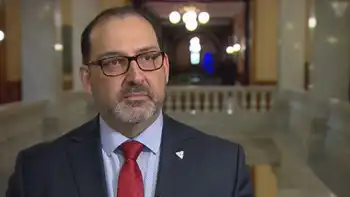Is ZENN Motor plugged in?
They won't talk about what they're doing or how they're doing it. They certainly won't discuss how their technology would allow electric vehicles to travel some 400 kilometres on a five-minute charge, as claimed by their Canadian partner, ZENN Motor Co. Inc.
All the outside world knows for sure is that EEStor Inc.'s facility was built to manufacture electricity storage devices known as ultracapacitors.
Toronto-based ZENN is so convinced that the science is sound that in June it exercised its right to raise its ownership stake, investing another $5-million on top of an original $2.5-million payment to secure a 10.7-per-cent ownership stake and exclusive rights to use the technology in small cars. It has also banked its entire future on the technology.
Last month, ZENN said it would stop trying to manufacture its own cars - the pollution-free, low-speed vehicles that were hyped on television by comedian Rick Mercer - and instead focus on selling its EEStor-based drivetrain to industry leaders such as Toyota and Ford.
"I have high confidence that their storage technology will be successfully commercialized," said ZENN chief executive officer Ian Clifford.
"But if EEStor doesn't do it, somebody else eventually will. It's technology that simply has to happen... if we're going to wean ourselves off oil and make the world habitable for future generations."
But for those who follow the development of electric vehicles, there's an irksome lack of evidence behind the technology that has helped send ZENN's stock up 134 per cent this year and given it a market value of nearly $200-million.
Only a handful of outside experts have been allowed to visit EEStor's Texas plant, which contains a manufacturing line ready to churn out the units. But they have tended to leave shaking their heads at the company's refusal to explain how its technology would overcome temperature-related meltdowns, or the loss of energy from leakage of electrical current. "It's impossible for me as a scientist to comment on [EEStor's] work because there isn't anything in the way of proof to consider," said Linda Nazar, a chemistry professor at the University of Waterloo who holds a Canada Research Chair in solid-state materials.
"Silence doesn't have to mean they haven't discovered something useful, but it often means things don't work the way they perhaps expected."
Industry rivals wonder how EEStor can develop a unit that is more effective at storing electricity than anything currently in production. California-based Maxwell Technologies Inc., for example, manufactures a unit that helps a gas-powered vehicle reduce its fuel use by 50 per cent, by capturing and reusing electricity generated while braking. But Maxwell hasn't developed a product that would store enough power to eliminate gasoline altogether.
"I'm perplexed by any sort of suggestion that they are in any way one of our competitors," said John Miller, vice-president of systems, applications and integration at Maxwell. "I mean, we produce products in high volume and nobody has ever seen anything they have ever done."
Capacitors are similar to batteries, in that they store electricity. But they don't contain chemicals, instead storing electrical charges on their surface. Researchers liken them to water towers, which can store excess liquid until needed and are easily refilled when empty.
"At sufficiently high voltages, material tends to fall apart - we know this because nature makes sense. So scientists have gone down [to the EEStor facility] and are still puzzled, and say it shouldn't work they way they say it does," Prof. Nazar said.
ZENN has been anticipating a working unit from EEStor since 2004, when it signed a technology-sharing agreement and agreed to work toward commercialization. In the meantime, ZENN has churned out just under 500 electric cars using more conventional batteries.
The latest delivery date for an operational ultracapacitor is set for December, but CEO Mr. Clifford and analysts who follow ZENN said that date isn't a certainty. But it's clear the company's future as a technology provider to the major manufacturers depends on EEStor. "It's like we're 20 months pregnant," Mr. Clifford said. "We've done the preparations and we are ready to move ahead."
EEStor was founded in 2001 by Richard Weir and Carl Nelson, former managers in disk-storage technology at IBM and Xerox, respectively. While three patents have been granted (19 more are pending) and encouraging third-party tests have been conducted on aspects of the unit's design, the company has yet to show a working prototype.
The mystery surrounding EEStor has spawned a fierce debate online, with both skeptics and boosters arguing about conspiracy theories - the military will discredit the technology so it can incorporate it into weapon systems on the sly, for example, or multinational oil companies will ensure it never gets beyond the trial stage. Even the movements of the company's executives are closely tracked, as bloggers hope to understand its strategy based on the management trail.
None of this has stopped investors from lining up at EEStor's door, especially because such ultracapacitors would have an impact far beyond the automotive sector. For example, they could allow for large-scale storage of electricity, which is impossible with current systems. Wind farms would be able to store the energy generated during gusty periods and dump it into the grid when it's needed.
Kleiner Perkins Caufield & Byers (KPCB), a California venture capital firm that backed companies such as Google and Electric Arts in their early days, is believed to hold about a 20-per-cent stake, Lockheed Martin has name-dropped EEStor in its patent applications and former Dell Inc. vice-chairman Morton Topfer joined the board last year. None are keen to comment, saying that the company isn't ready to meet its public quite yet.
"They're kind of in stealth mode right now and really focusing on the business, so they're not really ready for the media spotlight," said KPCB spokeswoman Brianna Woon.
That's left ZENN's backers to invest on faith, rather than hard science. That didn't impede a share offering in July, when the company raised $9.2-million in a difficult market. Three analysts follow the Toronto Venture Exchange listed-company's shares, according to Bloomberg, and all three have a "buy" rating and see the stock heading higher within 12 months.
Massimo Fiore, an analyst at Versant Partners in Montreal, was one of seven analysts to tour EEStor's facility in the summer. He said he was impressed with what he saw, but cited non-disclosure agreements in not discussing the actual technology. "They have their heads down and are trying to get this done ASAP.... The clock is ticking now that the world thinks they can do this. The skepticism is understandable as we have yet to see a working unit," Mr. Fiore said.
"There's no guarantee that the product will be delivered to published specifications or within the anticipated time frame, but there's no reason to think that EEStor is anything but a manufacturer in the latter stages of developing a groundbreaking technology."
Related News

Edmonton's 1st electric bus hits city streets
EDMONTON - Your next trip on Edmonton transit could be a historical one as the city’s first battery-electric bus is now on city streets, marking a milestone for Edmonton Transit Service.
“Transit has been around since 1908 in Edmonton. We had some really small buses, we had some trolley buses several years later. It’s a special day in history today,” Ryan Birch, acting director of transit operations, said. “It’s a fresh experience… quiet, smooth riding. It’s going to be absolutely wonderful.”
In a news release, Mayor Don Iveson called it the largest purchase of electric buses in Canadian history.
“Electric buses are a…





